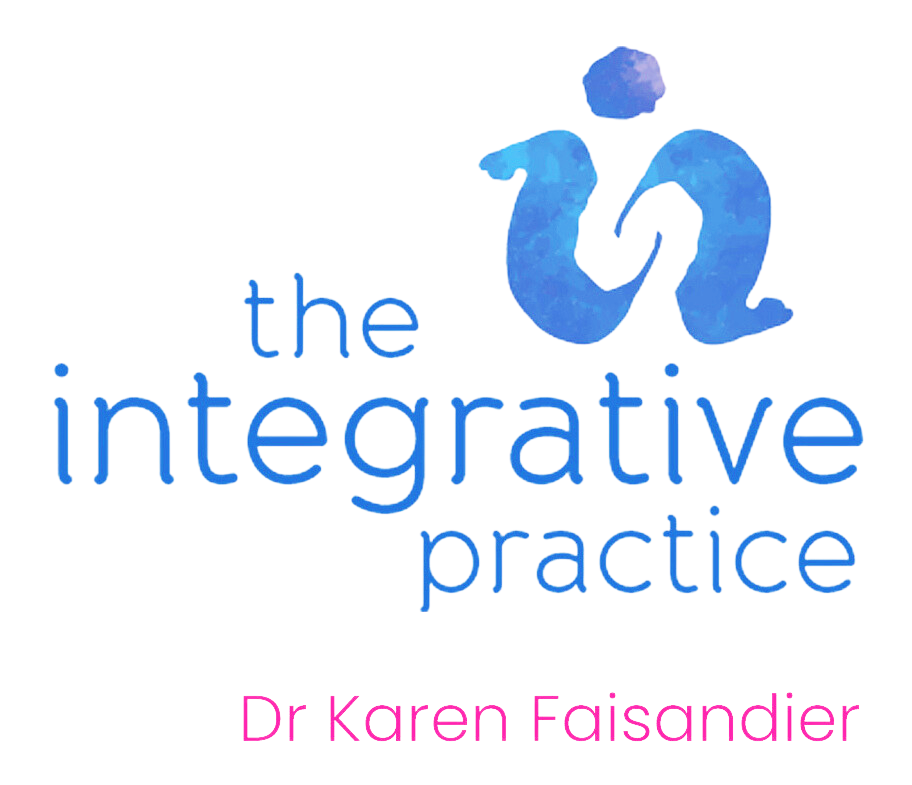The Critical Role of Vitamin D
Originally associated with bone health, vitamin D – termed the “sunshine” vitamin by Nair and Maseeh (2012) - is pertinent to immune system functioning and implicated in mental health concerns. More than a vitamin, it is actually a neuroprotective hormone and is super important in embryonic and brain growth over formative years as well as health and immunity over the lifespan. Vitamin D is synthesised in sunlit skin, while smaller quantities are accessed through eating certain D3 containing foods (e.g., fish, egg yolks). It is a fat-soluble vitamin which means it is built up and stored by the body, and so deficiency both occurs and resolves over a longer period of time. According to Berk et al. (2013) low vitamin D is the most common deficiency state in western cultures. In vitamin D’s case, deficiency equals the range which is associated with bone disease in humans. Vitamin D is an essential vitamin, and without enough, the body’s use of calcium and phosphorus are also affected, weakening bone strength and risking osteoporosis and fractures - hence it having long been focused on in bone health. Insufficiency is a grey area that sits above deficiency but below “adequate levels,” while what are referred to as “optimal levels” may need to be much higher for that person to feel their very best and thrive. More about optimal levels later.
Low vitamin D is linked to a multitude of adverse health concerns in the literature ranging from cancer to depression and even increased risk for suicide. There are vitamin D receptors in key areas of the brain and its presence plays an important role in setting the circadian rhythm (your sleep/wake cycle). It also impacts on glucocorticoids which help regulate stress, immunity and metabolic health. Vitamin D can help mediate responses to infection and contribute to reducing oxidative stress and systemic inflammation.
This is all interesting to the mental health field, as new science is developing the idea that depression may be an inflammatory problem requiring resolution of drivers of inflammation in order to best address the symptoms that occur (Bullmore, 2018).
Research investigating vitamin D as an actual treatment for depression has been rife with design flaws affecting the overall conclusions that can be drawn. These flaws include: 1) varying psychometric or assessment measures of depression, 2) “baseline status” - not differentiating those who already had a high level from those who were low, 3) “ineffective dosing” - administering doses below the minimum effective dose, and, 4) not actually measuring blood levels at all (Speeding, 2014). Resolving depression is usually (but not always) much more multifaceted than addressing a single nutrient, however, and so it is unsurprising that increasing vitamin D alone is not a solution for all.
New Zealanders are particularly vulnerable to Vitamin D insufficiency or deficiency because of our latitude (35-46 degrees S) from the equator and our major seasonal fluctuations in UV light exposure (Menkes et al., 2012). This is coupled with the evolutionary mis-match of our modern working behaviour, as we now spend much of our light-time hours indoors under artificial lighting - a phenomenon my Nutritionist colleague Jamie Scott calls “daylight robbery.” To measure vitamin D, you take a serum blood sample - 25-hydroxyvitamin D concentration (serum 25 OHD) - measured in nanomoles per litre (nmol/L or nM). The current ranges to determine deficiency or insufficiency are:
Insufficient - 25 - 50 nM
Deficient - less than 25 nM
According to our most recent NZ Ministry of Health Adult Nutrition Survey (2008/2009), 27.1% of adults were “insufficient” while 4.9% were deficient. But there is less consensus on what an “adequate” range for vitamin D is. In the above mentioned survey, the majority of adults (68.1%) had “adequate vitamin D” suggested to be levels over 50 nM. Yet true adequacy, known as optimum levels, may actually be those in excess of 75 nM, or even higher (e.g., 80-100nM). This suggests that the insufficiency range itself could be much wider (25 - 75 nM). But if we even use the more conservative ranges from the Adult Nutrition Survey this means that 1/3 kiwis had insufficient or deficient vitamin D. If we use the optimal range over 75 nM as our standard then this number becomes far greater.
I went delving to see if there was any local research conducted into vitamin D and mental health populations and came across a humble correlational study conducted in 2010, within a psychiatric inpatient unit based in Hamilton (Menkes et al., 2012). This study (N = 75), found that 74% of inpatients tested during late winter had vitamin D levels of <50 nM, that 19% were severely deficient (<25nM), and that those with the most debilitating mental health diagnosis of schizophrenia correlated with the very lowest average levels of vitamin D. These rates of insufficiency or deficiency were much greater than those in the Nutrition Survey, supporting the idea that lower vitamin D is potentially correlated with these mental health concerns although more research is needed. The authors proposed that vitamin D supplementation should be recommended for those with mental health symptoms, especially over the NZ winter months.
Low Vitamin D Contributors (NZ Nutrition Survey)
Being of Maori or Pacific ethnicity
Being a woman
Living in the lowest socioeconomic areas
Being obese or overweight
Living up North was associated with a greater mean average Vitamin D level than central or South Island
August, September, and October were peak Vitamin D deficiency months (especially those living in our South Island)
Possible Indicators of Low Vitamin D (non-exhaustive)
Often getting sick/not healing well, fatigue, bone/back pain.
Seasonal forms of depression or mood dropping over late winter/spring.
Symptoms of schizophrenia (delusions, hallucinations, paranoia).
Blood test reading lower than 100 nM.
How to Get Enough Vitamin D:
Get adequate sunlight - this also offers sunshine benefits independent of vitamin D – in the morning is preferable for bonus effects on circadian rhythm.
Eat food sources of vitamin D including egg yolks, mushrooms, and fish.
If supplementing then use D3, cholecalciferol (with K2) not D2 (ergocalciferol) as this is less effectively used by the body.
The amount of D3 to take depends on your individual health needs at the time and could range from 1-2000 IU per day (lowest effective dose), up to 10,000 IU (this is what is known as the safe upper limit).
Take D3 with meals or a form of fat (e.g., coconut oil) for best utilisation.
Make sure your magnesium level is also sufficient to support the utilisation of vitamin D.
Recommendations for Vitamin D & Mental Health in NZ
The best and cheapest way to get vitamin D is to simply get outdoors and soak in some sunlight – early in the morning, for 10-20 minutes without sunglasses on and with some skin exposed.
There are other ingredients within sunlight in addition to vitamin D – including the illuminative light exposure entraining your circadian rhythm for the day and aiding sleep that night. These additional effects may account for more improvements in mental health functioning above vitamin D alone. One pathway may be that morning sunlight is an amazing conductor of your natural body symphony, as it activates neurons in your suprachiasmatic nucleus, which in tun signals to your pineal “master gland” to regulate melatonin production - which is a sleep inducing neurohormone. This brain symphony can’t happen optimally in someone missing sufficient sun exposure – timed just right. For more of a comprehensive discussion on this amazing process read Daylight Robbery by Nutritionist and beyond, Jamie Scott.
It’s best practice to check your serum blood levels 1-2 times a year (ideally mid-summer and mid-winter - i.e., your highest and lowest exposures) and look at these with your health specialist in relation to your needs, especially if you are using supplementation. You can order this test at a blood testing lab independent of a GP and cost will be approximately $55.
So, if Winter is approaching, it may be time to check your vitamin D status, make sure your blood levels are in the optimal range (around 80 -100 nM) especially if you have any of the risk factors or signs of low vitamin D, or if you have a history of experiencing seasonal depression. Remember it will take time to build your levels up and you may need higher doses than usual over winter or to get replete. You can’t rely on vitamin D as a single fix for mental health concerns - if you find you are low in vitamin D and are experiencing mood issues then treating vitamin D may may a substantial difference according to the few studies to date (Spedding, 2014). Being replete in critical vitamins such as vitamin D is an important part of psychological wellbeing however there are often many other contributing factors to also address.
I encourage you to check if you are getting enough sun and, if not, think creatively about how you can get more sunlight into your early morning more often. Can you walk all or some of the way to work? Can you take your hot morning beverage outside for some mindful time under the sun rays? Can you take work breaks outside instead of inside? Can you at least move your work station to a sunny window spot? On leisure days can you go for a longer adventure on foot or bike? Can you chase the sun when choosing holiday destinations to top up your stores? And if you combine your sunlight with exercise like a morning run, bike or walk then you further maximise the health benefits!
Vitamin D may never be more important to us than it is in 2021.
~ To your revived health.
References
Berk, M., Williams, L. J., Jacka, F. N., O’Neil, A., Pasco, J. A., Moylan, S., ... & Maes, M. (2013). So depression is an inflammatory disease, but where does the inflammation come from?. BMC Medicine, 11(1), 200.
Bullmore, E. (2018). The inflamed mind: A radical new approach to depression. Picador.
Vitamin D Research Analysis (May 7, 2020). Retrieved May 31, 2020, from https://examine.com/supplements/vitamin-d/
Can Vitamin D Cure Depression? (Nov 1, 2019). Retrieved May 31, 2020, from https://examine.com/nutrition/vitamin-d-and-depression/#ref1
Menkes, D. B., Lancaster, K., Grant, M., Marsh, R. W., Dean, P., & du Toit, S. A. (2012). Vitamin D status of psychiatric inpatients in New Zealand’s Waikato region. BMC psychiatry, 12(1), 68.
Nair, R., & Maseeh, A. (2012). Vitamin D: The “sunshine” vitamin. Journal of Pharmacology & Pharmacotherapeutics, 3(2), 118.
Sepehrmanesh, Z., Kolahdooz, F., Abedi, F., Mazroii, N., Assarian, A., Asemi, Z., & Esmaillzadeh, A. (2016). Vitamin D supplementation affects the beck depression inventory, insulin resistance, and biomarkers of oxidative stress in patients with major depressive disorder: a randomized, controlled clinical trial. The Journal of nutrition, 146(2), 243-248.
Spedding, S. (2014). Vitamin D and Depression: A Systematic Review and Meta-Analysis Comparing Studies with and without Biological Flaws. Nutrients, 6, 1501-1518.
University of Otago and Ministry of Health (2011). A Focus on Nutrition: Key findings of the 2008/09 New Zealand Adult Nutrition Survey. Wellington: Ministry of Health.


